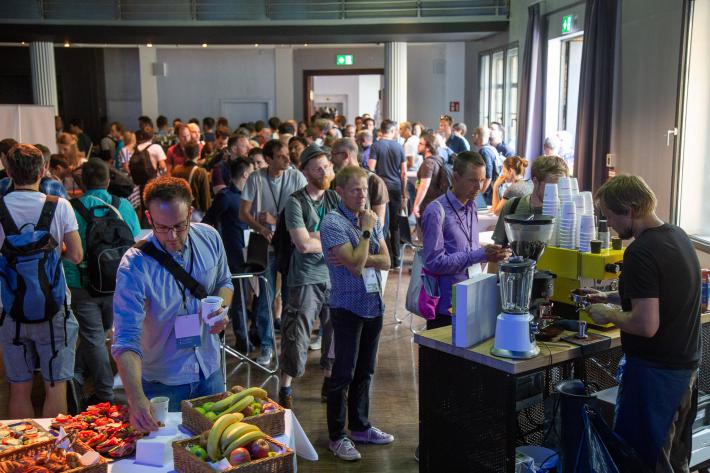Berlin Buzzwords 2018 is over and it was a blast! We welcomed more than 550 participants at the conference and heard inspring talks about the latest trends in storing, processing, streaming and searching large amounts of digital data. After our wind-swept barcamp on Sunday more 60 exciting sessions were held on 4 stages on two conference days.
A huge Thank You to everyone who helped to make Berlin Buzzwords 2018 an amazing event once again:
Thank you to all volunteers, speakers, our program committee and our partners and sponsors, and thank you to our attendees who contributed to the success of this year's #bbuzz by asking questions after the talks, getting involved at the barcamp or just by being inspiring conversation partners. Day One kicked off with the keynote “Blockchain in Wildlife” by Marta Piekarska who gave a very useful industry insights on blockchain technology used in real world applications.
Barbecue and drinks at our Get-together in the evening rounded off the first conference day and offered time to wrap up the day with a cold beer in company with friends.
The following day commenced with a keynote by Aurélie Pols. She shed some light on the GDPR and how this new regulation impacts developers working with user data. Like the first conference day the second was packed with talks which included “Large Scale Graph Solutions: Use-cases and Lessons Learnt” by Rekha Joshi, “Top 10 data engineering mistakes” by Lars Albertsson and “Big News for Big Data in Kubernetes” by Ted Dunning to name just a few highlights.
Last but not least, we would like to thank our recording partner WECAP who did an amazing job once again. All talks will be uploaded to our YouTube Channel and you can already find some of them there. If you missed a session, you now have the opportunity to follow it up at home.
Besides the conference program, participants were invited to join MICES - a one day event on search in e-commerce - and FOSS Backstage - the new conference on governance, collaboration, legal and economic aspects within the scope of free and open source software.


